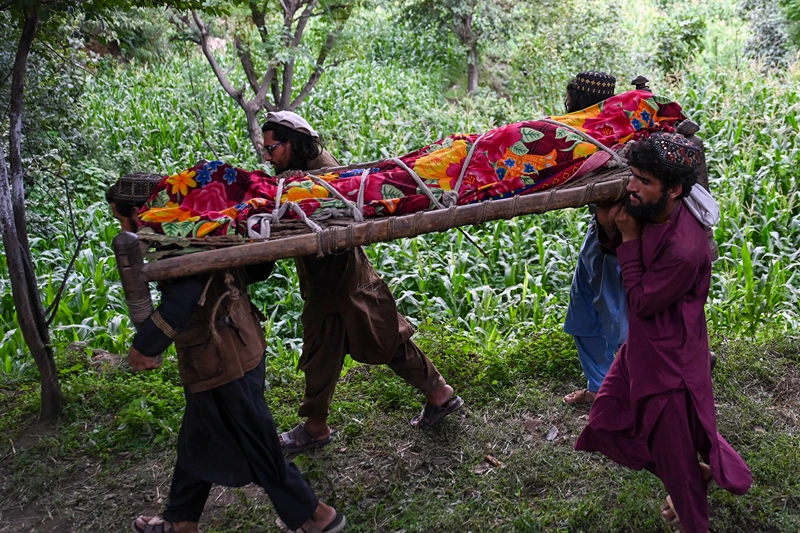
OAN Staff Abril Elfi
4:10 PM – Tuesday, September 2, 2025
The death toll from the earthquake in Afghanistan has risen to 1,411, with at least 3,124 people injured.
Spokesman Zabihullah Mujahid stated on Sunday that the death toll was initially 800. However, the United Nations (UN) updated that information and explained that the originally provided number was just for the province of Kunar, and that the total death toll was over 1,400.
According to the U.S. Geological Survey (USGS), the earthquake occurred on Sunday at around midnight local time, striking 17 miles from the eastern city of Jalalabad, near the border with Pakistan.
Indrika Ratwatte, the United Nations’ resident coordinator in Afghanistan, stated that rescuers are still in a “race against time” to reach the mountainous and inaccessible area impacted. In a media briefing in Geneva on Tuesday, he also warned of an increase in casualties.
“We cannot afford to forget the people of Afghanistan who are facing multiple crises, multiple shocks, and the resilience of the communities has been saturated,” Ratwatte said, while urging the international community to step forward. “These are life and death decisions while we race against time to reach people,” he said.
Ratwatte also explained that when the walls of timber-and-mud homes collapse, the roofs often fall on residents, causing injury or death. Although the neighborhood was sparsely populated, the earthquake struck while everyone was asleep.
“If you were to model it based on what has happened before, clearly there’s no question that the casualty rate is going to be rather exponential,” he said.
Kate Carey, the deputy head of the UN Office for the Coordination of Humanitarian Affairs in Afghanistan, noted that more than 420 health facilities have closed or were suspended owing to a “massive reduction” in financing, with 80 of them in the eastern region — which was hit worst by Sunday’s earthquake.
“The consequence is that the remaining facilities are overwhelmed, have insufficient supplies and personnel, and are not as close to the affected populations as the more local facilities at a time when providing emergency trauma care is needed in the first 24 to 72 hours of the earthquake response,” said Carey.
Taliban authorities have established a camp in Kunar to coordinate supplies and humanitarian help. Two facilities organize the evacuation of injured people, the burial of the deceased, and the rescue of survivors.
Stay informed! Receive breaking news alerts directly to your inbox for free. Subscribe here. https://www.oann.com/alerts
What do YOU think? Click here to jump to the comments!
Sponsored Content Below

